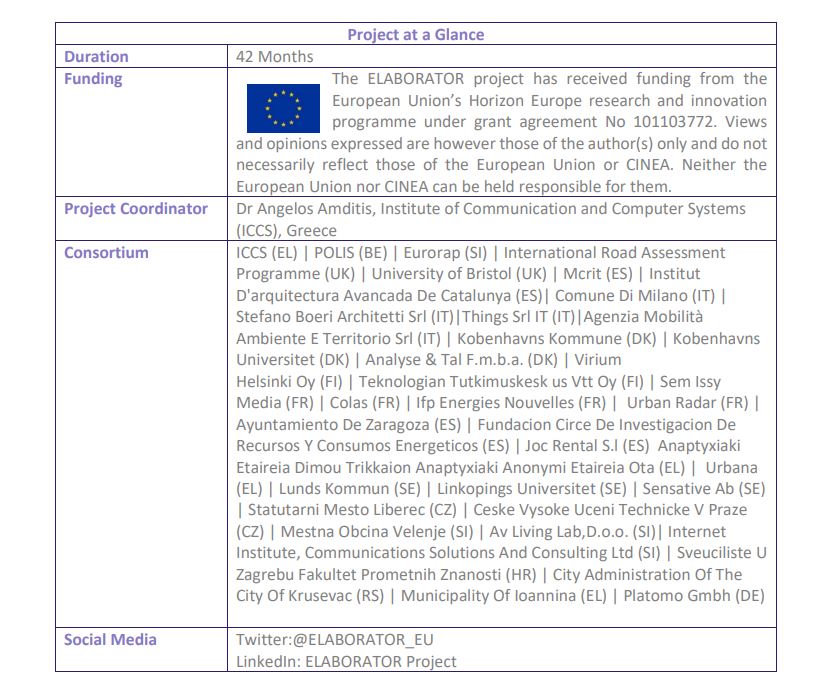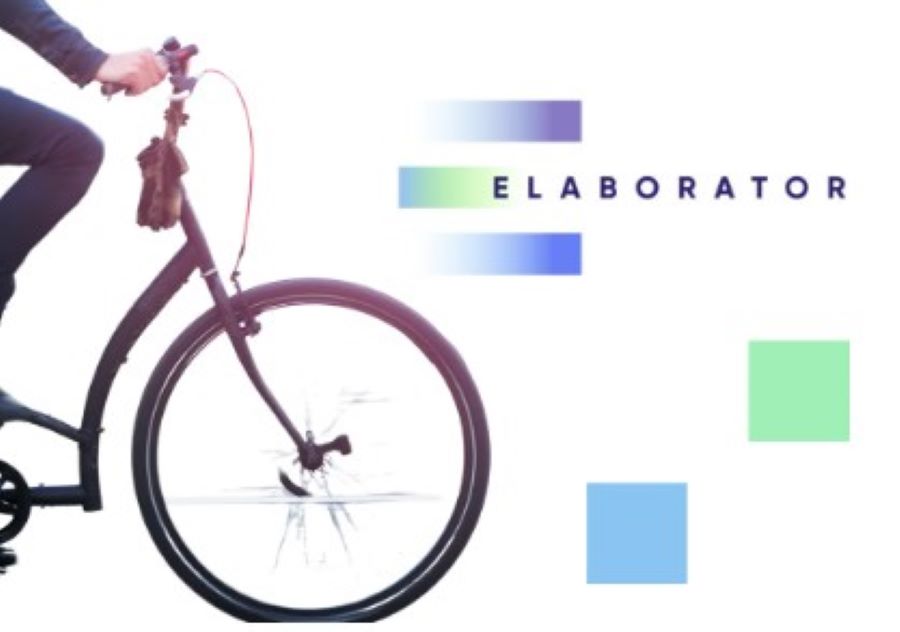How to design sustainable urban mobility in a way that is also inclusive, safe, and affordable, paving the way for climate-neutral cities? ELABORATOR has got it covered and iRAP and the European Institute of Road Assessment (EIRA) are proud to join the 38-strong partner network for the project! On 7-9 June 2023, this exciting Horizon EU project kicked off in Athens, Greece.
A new EU project is (literally) on the Horizon: it is none other than ELABORATOR, an initiative funded by the Horizon EU programme for designing inclusive, safe, affordable and sustainable urban mobility.
What is ELABORATOR?
ELABORATOR stands for ‘The European Living Lab on designing sustainable urban mobility towards climate neutral cities’.
The project uses a holistic approach for planning, designing, implementing and deploying specific innovations and interventions towards safe, inclusive and sustainable urban mobility. These interventions consist of smart enforcement tools, space redesign and dynamic allocation, shared services, and integration of active and green modes of transportation.
They will be specifically co-designed and co-created with identified ‘vulnerable to exclusion’ user groups, local authorities and relevant stakeholders.
The interventions will be demonstrated in several cities across Europe, starting with six Lighthouse Cities consisting of:
- Milan (Italy)
- Copenhagen (Denmark)
- Helsinki (Finland)
- Issy-les-Moulineaux (France)
- Zaragoza (Spain)
- Trikala (Greece)
And six Follower Cities, consisting of:
- Lund (Sweden)
- Liberec (Czech Republic)
- Velenje (Slovenia)
- Split (Croatia)
- Krusevac (Serbia)
- Ioannina (Greece)
Each city will be implementing one or more innovative ‘interventions’ to improve urban mobility, with the aim of demonstrating how to implement the intervention and showcase their effectiveness to ‘Observer’ Cities.
What will be the aim of these city pilots, you ask? The principal objectives are three-fold:
- To collect, assess and analyse user needs and requirements towards safe and inclusive mobility and climate-neutral cities;
- To collect and share rich information sets made of real data, traces from dedicated toolkits, and users’ and stakeholders’ opinions among the cities;
- To increase the take-up of innovations via a twinning approach to generate detailed guidelines, policies, future roadmap and built capacity for service providers, planning authorities and urban designers for the optimum integration of such inclusive and safe mobility interventions into Sustainable Urban Mobility Plans (SUMPs).
The interventions in the 12 cities will be evaluated according to a range of criteria, including (but not only) safety. These criteria will align with reporting against Sustainable Urban Mobility Indicators (SUMI).
EIRA will lead the project work package related to overseeing the implementation of solutions in the six Follower Cities and undertake capacity building activities in the Observer Cities.
iRAP will lead the work package related to evaluation and impact assessment to determine what tools and/or analysis is best suited for each of the cities, and use these to evaluate the interventions by way of before and after assessments.
The kick-off meeting
The three-day event provided many fruitful insights to the consortium, a multidisciplinary group composed of 38 partners who bring to the table their varied and exceptional expertise on the topic, working together towards implementing sustainable urban mobility and climate-neutral cities.
What followed in the next days was a series of presentations from each of the work package leaders, describing their points of action for the duration of the project. Lighthouse and Follower Cities also presented their plans and how they intend to implement the initial interventions.
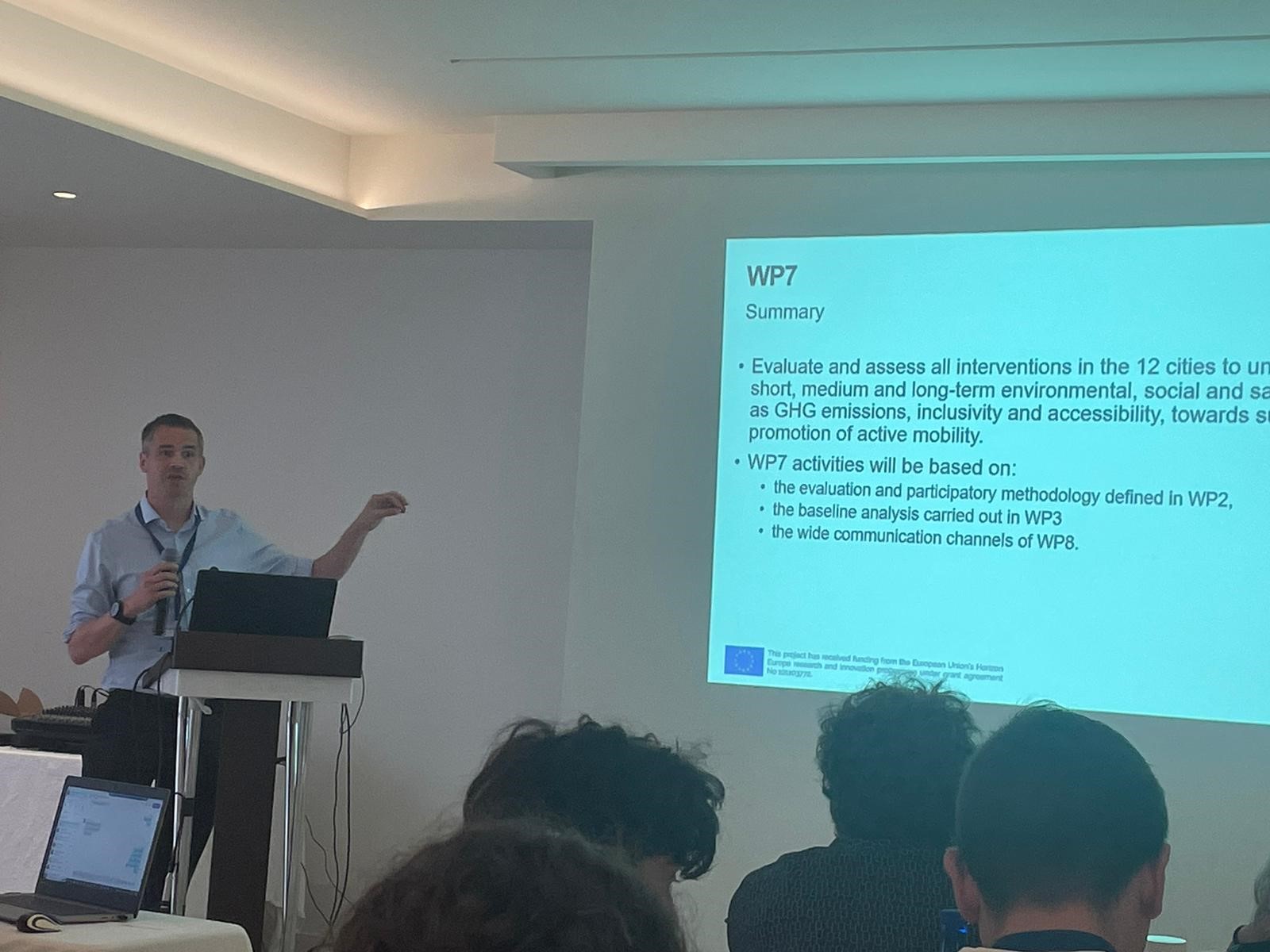
iRAP Global Technical Director James Bradford sharing iRAP’s work package
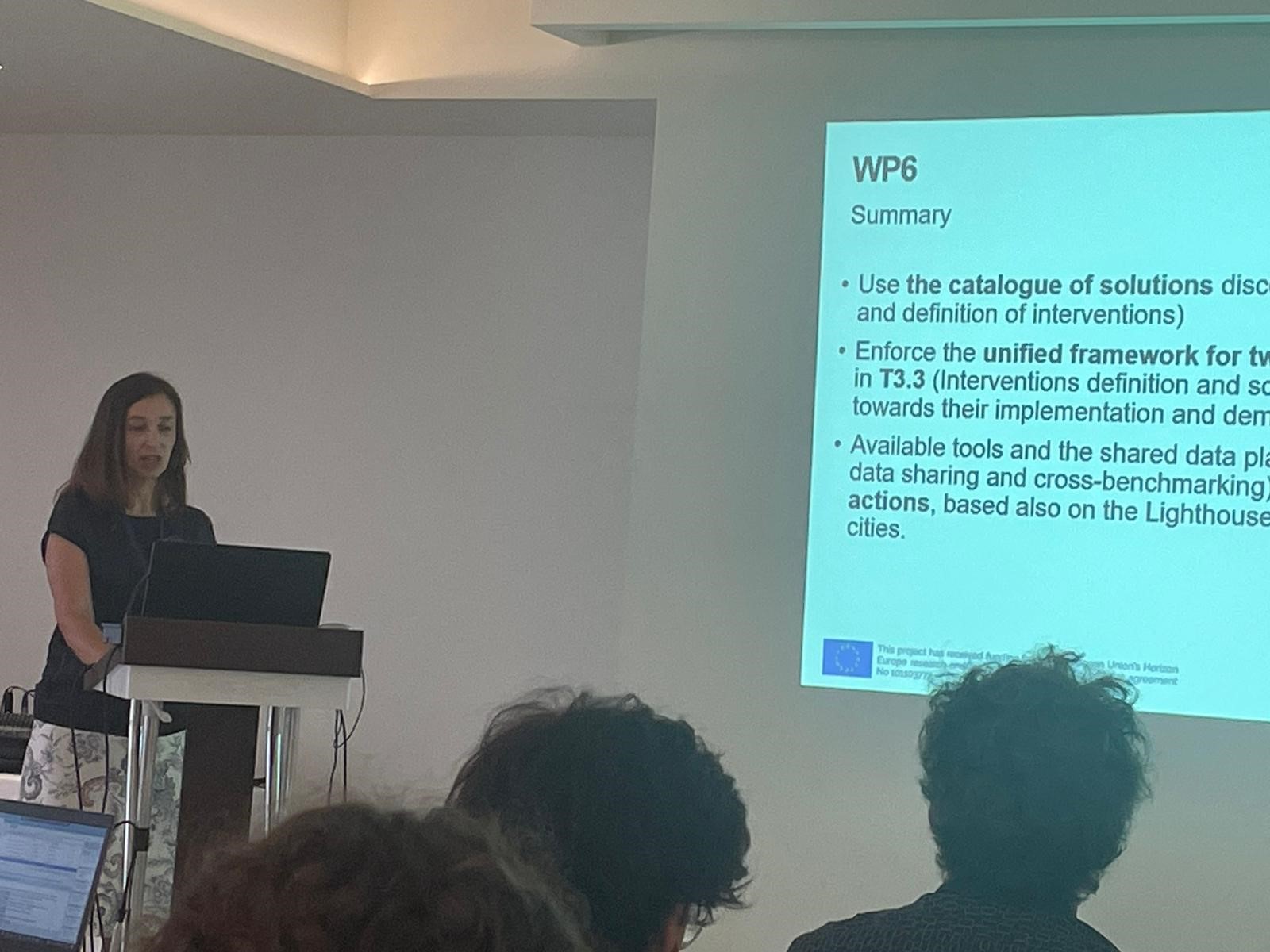
Of course, good collaboration between partners is key: that is why, beyond the presentations, a social event was also held at the end of Day 2, for the consortium to informally get together and build teamwork.
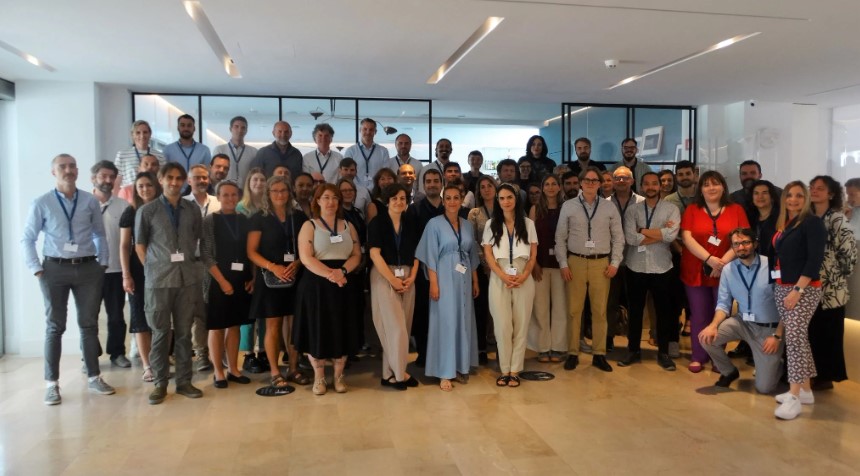
Elaborator Consortium
The last day of the kick-off saw an exciting, hands-on workshop on the discovery and definition phases of the ELABORATOR methodology. Its purpose was to take a first step towards understanding how our cities perceive their mobility challenges, their different user needs, what relevant interventions have been co-created in the past and how different Living Labs have been realized.
The session also provided a clearer view of relevant mobility data that is collected in the cities, to pair leading and following cities and begin the knowledge exchange towards establishing the ELABORATOR Living Lab (LL).
After such an exciting meeting, we cannot wait to get down to business and work hard at delivering on all project objectives. Stay tuned – much more to come soon!
Follow the project’s progress on Twitter @ELABORATOR_EU and LinkedIn ELABORATOR Project.
Article credit: POLIS; Images credit: POLIS and iRAP
